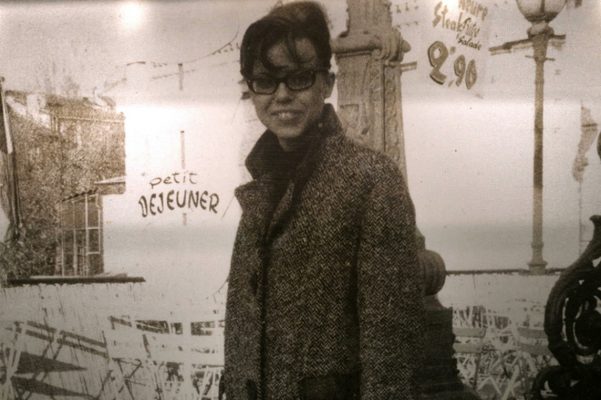Between 1979 and 1985, Ziva Postec edited Claude Lanzmann’s film Shoah, a nine-and-a-half hour documentary on the subject of the Holocaust. The film places an emphasis on interviewing witnesses, on oral history, while eschewing the use of archival footage, deciding instead to capture the locations central to the final solution in the present day: travelling shots of the tracks leading up to Auschwitz, slow pans across the remnants of Treblinka. Postec is thanked in the opening scroll of Shoah, and Catherine Hébert’s documentary shows why. In her five years of editing, working almost incessantly, she helped shape the film into its immaculate, mournful form from over 350 hours of footage.
The documentary opens with Postec living in Israel, going to market, living her life. By looking at her shelves, Postec and Hebert begin delving into her career, which includes credits on films by Alain Resnais, Jean-Pierre Melville, and Orson Welles.
There are diverting moments of filmmaking, such as when Postec takes a train and the locomotive’s movements seamlessly change into the action of celluloid being fed through a projector. Doubly significant, because, in part, the film follows the process of creating a digital restoration of Shoah, all participants praising the ingenuity of the editing.
And well they might, but something’s amiss. The documentary includes appraisals of Postec’s work, but they are vague in the extreme. One historian praises the film’s scale, opining that it’s “probably” got something to do with the editing. It definitely does: the eighteen minute section in Shoah in which Lanzmann interviews Abraham Bomba, a Treblinka-survivor and barber, is made unbearably moving and forceful for its acceptance of his silence. The man is breaking down, remembering those who didn’t survive, and the camera and the director keep with him, gently, but firmly. It was crucial that Postec and Lanzmann let the scene run on.
Hébert also tantalises with hints as to the strained relationship between Postec and Lanzmann, but doesn’t dig into this. It’s an important omission. Understanding the disagreement might have lent a greater understanding to the final shape of Shoah. Instead, a final remark by Postec about forgetfulness marks a change of purpose from Shoah’s mission: and the feeling you get is that the documentary understands neither its subject nor one of her great achievements.
Screening at Edinburgh Filmhouse Fri 21 and Odeon Lothian Road Saturday 22 Jun 2019.
